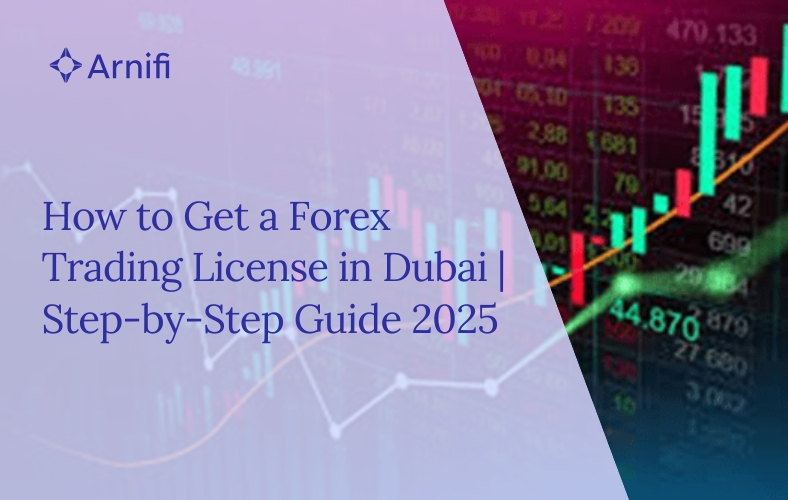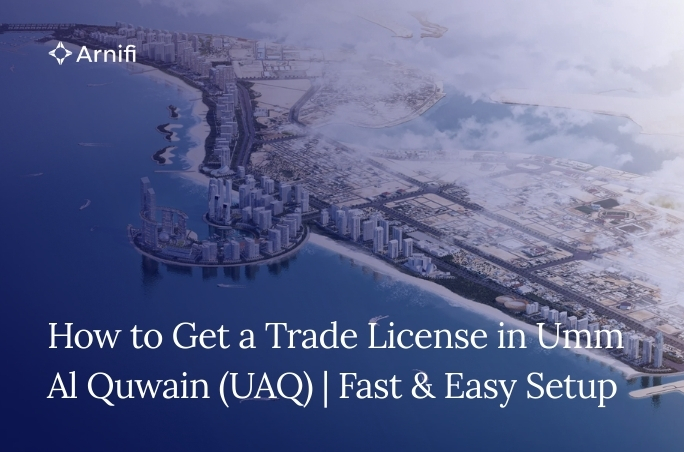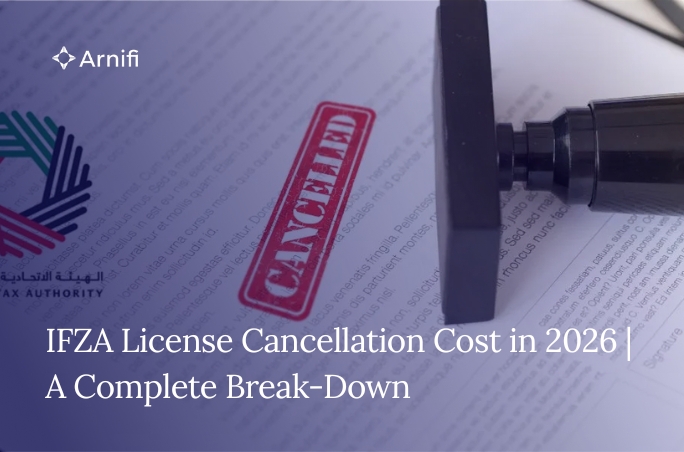How to Get a Forex Trading License in Dubai | Step-by-Step Guide 2025
by Shethana May 30, 2025  8 MIN READ
8 MIN READ

You should also look at the foreign exchange sector, as it is one of the busiest financial spheres globally. Likewise, Dubai has not remained behind.
Being an international business hub, it draws traders, brokers, and investors worldwide. With these advantages, modern infrastructure, transparent financial laws, and an investor-friendly tax regime, Dubai is the most attractive place for forex companies.
However, the problem is that the untaxed trading of currencies could lead to legal issues for the person or entity indulging in forex trading. Hence, acquiring a forex trading license in Dubai is not just a matter of recommendation; instead, it’s necessary to operate in the attire of a legitimate operation.
This article covers the basics: who regulates, license types, eligibility criteria, the licensing process, costs, etc. If one plans to open a new brokerage or try to get an existing broker into the UAE territory, this guide will help one launch the journey right.
Table of contents
- Understanding Forex Trading Regulations in Dubai
- Types of Forex Trading Licenses Available in Dubai
- Eligibility Criteria and Requirements for Forex Trading License
- Step-by-Step Process to Obtain a Forex Trading License in Dubai
- Step 1: Choose the Jurisdiction
- Step 2: Prepare a Detailed Business Plan
- Step 3: Register the Company
- Step 4: Submit Application to Regulatory Body
- Step 5: Fulfil Capital and Compliance Requirements
- Step 6: Provide Required Documentation
- Step 7: Undergo Regulatory Review
- Step 8: Obtain License and Commence Operations
- Documentation Required for Forex Trading License Application
- Costs Involved in Obtaining and Maintaining a Forex Trading License
- Challenges and Common Pitfalls in Getting a Forex Trading License
- Benefits of Getting a Forex Trading License in Dubai
- Post-Licensing Compliance and Obligations
- Conclusion
Understanding Forex Trading Regulations in Dubai
Dubai forex trading is regulated under strict frameworks to ensure investor protection and financial transparency. The two regulatory bodies each supervise free-zone and mainland forex operations:
- The Dubai Financial Services Authority (DFSA) regulates entities in the Dubai International Financial Centre (DIFC).
- The Securities and Commodities Authority (SCA) regulates mainland operations and some Free Zones.
The DFSA adheres to international financial standards, which are ideal for entities targeting global investors. The SCA, meanwhile, focuses on retail forex and investment products within the UAE.
It is all about compliance. Noncompliance may attract fines, revocation of licenses, or, in severe cases, even imprisonment. The regulations cover everything from anti-money laundering (AML) procedures to the segregation of client funds; companies must maintain robust internal controls and risk management processes.
Consideration must also be given to jurisdiction. Those who operate from the mainland have a different set of licensing procedures than those in the DIFC, which utilises an independent legal framework based on common law. That affects how licensing will take place, the overall compliance workload, and even business opportunities.
Types of Forex Trading Licenses Available in Dubai
There are different types of forex trading licenses in Dubai. Understanding which is best suited for you, you can apply it accordingly.
- Forex Brokerage License: This allows you to trade on behalf of clients and offer leverage-based forex trading.
- Investment Advisory License: Enables you to offer consultancy services around forex and other asset classes without executing trades.
- Asset Management or Financial Services License: Suitable for firms managing forex-based portfolios.
Each license comes with its responsibilities, reporting duties, and capital requirements. A brokerage, for instance, demands more capital than a simple advisory setup. Choosing the proper license from the beginning can save time and prevent compliance issues later.
Eligibility Criteria and Requirements for Forex Trading License
Getting a forex trading license in Dubai isn’t just about paperwork — it’s about proving your business is capable, credible, and compliant. Here are the typical eligibility and documentation standards:
- Minimum Capital Requirements: Vary depending on the type of license. A DIFC brokerage may require upwards of USD 500,000 in paid-up capital.
- Business Structure: Options include establishing an LLC, opening a branch, or operating from a Free Zone.
- Qualified Personnel: Founders and key employees must show relevant financial experience, certifications, and clean legal backgrounds.
- Due Diligence and Background Checks: Authorities review previous employment history, legal records, and financial standing.
- Office Space: A physical office in the UAE, particularly in the relevant jurisdiction (mainland or Free Zone), must have proper infrastructure for operations.
Step-by-Step Process to Obtain a Forex Trading License in Dubai
Step 1: Choose the Jurisdiction
Since the business deals with currencies and finance, starting or operating in the mainland is better with free zones like DIFC, or operating in the mainland if the budget aligns well. Due to its robust legal structure, most entrepreneurs launching such software trading in the DIFC are often preferred for international businesses.
Step 2: Prepare a Detailed Business Plan
You should master the business plan, the outline should have a perfect pitch of what your business will look like in the future, the target market, trading platforms, and the compliance strategy.
Step 3: Register the Company
Choosing the proper jurisdiction is essential to proceed with company registration. This process includes reserving your trade name, preparing Articles of Association, and appointing directors or shareholders.
Step 4: Submit Application to Regulatory Body
The application should be submitted to the DFSA (for DIFC) or the SCA (for mainland/Free Zone). These changes in the authorised department are according to the jurisdiction. Also, the application must require the business plan, proof of capital, and background information.
Step 5: Fulfil Capital and Compliance Requirements
Deposit the required capital into a UAE-based bank account. You’ll also need to set up compliance mechanisms, including AML/KYC processes.
Step 6: Provide Required Documentation
Documents include:
- Business plan
- Proof of office lease
- Directors’ and shareholders’ IDs
- Risk and compliance policies
Step 7: Undergo Regulatory Review
Expect a thorough vetting process. The regulator may request additional information or interview key personnel.
Step 8: Obtain License and Commence Operations
Once you get approval, you’ll receive your forex trading license in Dubai and the entry card to legally operate and start trading.
Depending on the jurisdiction in which you choose to set up your business, the turnaround time to get a license is around 3–6 months. Hiring a local consultant can significantly speed things up and help avoid common setbacks.
Documentation Required for Forex Trading License Application
The licensing process demands a comprehensive set of documents:
- Company registration papers
- Passport copies and CVs of directors/shareholders
- Detailed business plan and cash flow forecasts
- AML and KYC manuals
- Risk management procedures
- Proof of office location
- Professional indemnity insurance (in some cases)
Having everything ready before submission can help avoid back-and-forth with regulators and speed up approval.
Costs Involved in Obtaining and Maintaining a Forex Trading License
Operating a licensed forex firm in Dubai isn’t cheap, but the investment is worthwhile. Here’s a general cost breakdown:
- Application Fees: Varies based on license type (from AED 15,000 to AED 50,000)
- Regulatory Charges: Ongoing fees to DFSA/SCA
- Capital Requirements: Can be USD 250,000–500,000 or more
- Operational Costs: Office rent, technology, staff salaries
- Compliance and Renewal Fees: Annual audits, legal fees, and license renewals
Challenges and Common Pitfalls in Getting a Forex Trading License
Several firms underestimate the complexity of acquiring a forex trading license in Dubai. Here are common hurdles:
- Delays due to incomplete documentation
- Tight compliance standards, especially for brokerage licenses
- Capital inadequacies are causing application rejections
- Legal misunderstandings, particularly regarding DIFC vs mainland rules
Benefits of Getting a Forex Trading License in Dubai
There’s a reason so many businesses pursue licensing in Dubai:
- Legal Credibility: Operate under a clear legal structure
- Market Access: Tap into UAE and global markets
- Banking Access: Open corporate accounts with ease
- Investor Trust: Being licensed boosts client confidence and growth potential
Post-Licensing Compliance and Obligations
Your responsibilities don’t end after getting the license. Maintaining your forex trading license in Dubai requires:
- Filing regular financial reports and audits
- Adhering to AML and KYC obligations
- Staying in contact with regulators (e.g., DFSA or SCA)
- Maintaining capital adequacy and updating risk policies
Also Read:
- How to Get Municipal Approval for a Trade License in Dubai | Complete Guide 2025
- How to Cancel a Trade License in Dubai | Step-by-Step Guide 2025
- How to Get a Trade License in Dubai, UAE in 2025?
- How to Obtain a General Trading License in Dubai: A Step-by-Step Guide 2025
- How Much is the Cost of a General Trading License in Dubai?
- How to Verify a Trade License in Dubai?
- How to Download Trade License in Dubai, UAE?
Conclusion
Getting a forex trading license in Dubai is the first step to building a trusted and scalable forex business.
Most of the registration process is simple, while some require technical knowledge, which can be time-consuming.
But all these hurdles provide you with long-term benefits and market security.
Arnifi is here to handle and ease the process from all aspects, i.e., technical, legal, and business setups.
Our experts will guide you through every step of the process. Starting from choosing the right freezone to completion & execution of business.
Top UAE Packages

Related Articles
Top UAE Packages



